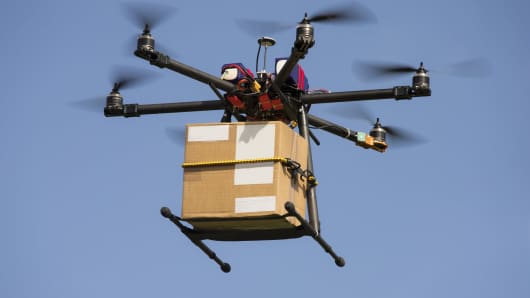Though jokes about the culture merger abound — images of drones delivering kale — analysts widely predict that Whole Foods will eventually deliver groceries ordered from a section of the Amazon site. A logistically simpler synergy would be for shoppers to order from a Whole Foods section of the Amazon site and then pick up prepacked, prepaid groceries ordered on Amazon at a dedicated section of their local Whole Foods store. Eventually, Whole Foods delivery could be facilitated by a newly emerging fleet of Amazon delivery trucks — an effort to cut costs and deny FedEx its margin on Amazon deliveries.
Though Whole Food items are anything but inexpensive (some jokingly call the chain "Whole Paycheck"), the price cuts may diminish this pricey image by conferring more value. This, along with an emphasis on speed and convenience, is emblematic of the evolving tech-dominated consumer economy. Another food example is Domino's Pizza, which is so aggressive in online ordering that some are calling it a technology company that happens to deliver pizza. The potential impact of technology on Domino's is reflected in its recent announcement of a test program, in partnership with Ford, involving a self-driving delivery vehicle.
And this is just to name a few consumer sectors. The effects of technology are pervasive, registering outside the consumer products realm. Before investing or divesting, the key is to examine traditional sector-rotation analysis to determine whether it still holds up in light of the current tech environment and to be aware of how tech advancements and evolving consumer preferences might affect a given sector.
— By Eric C. Jansen, founder, president and chief investment officer of AspenCross Wealth Management












